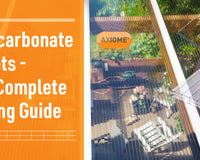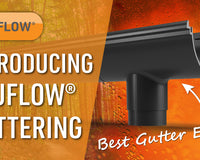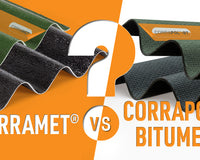So, you are wanting to bend a plastic sheet? – But, how do you know if it is going to break? And, how do you know if it will be flexible enough? These are common questions we get asked.
In this article, we cover the key details about how to bend plastic sheets.
There are a range of factors that need to be covered and thought about when considering bending a plastic sheet. To make it easy to understand we have divided these into 5 sections as set out below:
- Types of Plastic you can bend (and some you can’t!)
- Types of Bending
- Sheet Thickness Vs Curve Radius
- Things to avoid when bending plastic sheets
- Effects of Bending Plastic Sheets
So, let’s get stuck in…
Types of Plastic you can bend (and some you can't!)
Polycarbonate is the most popular option when it comes to bending a sheet as it is strong, flexible and won’t crack like other plastics, such as acrylic, when curved. You should avoid bending other clear plastic sheets made from acrylic, styrene or PET/ PETG as they are more liable to break or crack, as they are made from comparatively weaker plastic resins.
There are three types of Polycarbonate Sheet as set out below:
- Solid Plastic Sheets
- Twinwall Plastic Sheets
- Corrugated Plastic Sheets
Bending Solid Plastic Sheet:
Solid Polycarbonate Sheets such as Axgard® are the most common sheet used when a curved radius is required. These strong clear plastic sheets tend to be the easiest to curve as they are relatively flexible.
The polycarbonate resin is around 200 times stronger than glass of the same thickness, mitigating any risks of a broken or smashed pane as they will not crack or break when bending.
Should the sheet be impacted accidentally or by vandals these sheets should resist most impacts; certainly, from a clear glazing perspective, they are the strongest plastic roof sheets available.
For example, solid polycarbonate is often used for the likes of bike shelters, bus shelters, smoking shelters, and children’s play areas, where glass would be too expensive, dangerous and liable to smash.
Solid Polycarbonate sheeting is a long-lasting, durable option. Not only will it curve effectively to your radius but it won’t fade or go yellow like many other plastics. An excellent clear plastic sheet option all round.
Bending Twinwall Plastic Sheet:
Similar to the solid sheets, these multiwall or twinwall polycarbonate sheets, such as Axiome®, are also a great option to consider. They are also flat, however, the sheet is made up of two or more layers in the internal structure which means they have slightly different advantages and features.
Firstly, twinwall or multiwall polycarbonate gives a much more rigid overall solution. This means they are rigid in one direction but can be curved in the other direction. Across the width, they will be very rigid, however in the length they can still be curved.
The internal structure also makes the sheets more popular for use on greenhouses. Polytunnels and similar structures due to the thermal insulating qualities which ensure the inside of the structure stays warm. Read our Build a Polytunnel with Polycarbonate Sheets blog for more info on that.

With these types of sheets, the thinner the sheet the higher the radius of bend can be achieved. You can find some guidance on minimum bending radiuses in the Axiome Technical Guide.
Bending Corrugated Plastic Sheet:
Finally, how to bend our corrugated sheeting, such as Corrapol® Stormproof. This is the easiest material to bend due to its more flexible nature and thinner material. However, the sheets can only be curved easily across the width of the sheet direction due to the corrugated profile.
Corrugated plastic sheets made from polycarbonate are more pliable than solid or twinwall sheet types. However, they are mainly used where the corrugated look is suited, such as outdoor eating areas, in the garden, for cold frames and horticultural applications, or in farming applications.
Given the traditional corrugated style of the sheets, corrugated polycarbonate sheets can create very aesthetically pleasing designs. Why not go for a ripple effect rather than your standard flat style?
When choosing your Polycarbonate Sheets, it is very important that you choose UV-protected sheets such as Axiome®, Axgard® and Corrapol® brands. With UV protection you don’t have to worry about the sheets discolouring or going brittle once you have purchased and installed them.
Types of Bending
Plastic can be bent in two ways - around a shallow curve or along a sharp corner.
When bending a sheet around a sharp corner you will require heat to get the desired radius. With heat bending, you tend to heat the plastic to a specific line or point in the sheet and hold it to the shape.
This article is mostly focused on Cold Bending around a shallow curve. With cold bending you can bend the sheets around a shallow curve which tends to suit roof glazing applications. The curve would typically follow the pre-curved roof rafter or purlin structure.
Having a curve on a roof further enhances the aesthetic looks and also increases the rigidity of the sheets.
Cold bending is generally formed over by the sheet being fully secured to a curved structure. Simply bend over a structure and fix it with quality screw-down glazing bars, following the curve that is created by the sub-structure.
When cold bending, it is always best to be aware not to force the sheet tighter than the recommended radius. A tighter radius can be achieved with a thinner sheet which is covered in the next point below.
You also need to factor in the things you should avoid or watch out for when bending polycarbonate sheets. Please note that this guide only covers cold bending and bending plastic sheets to a curve. It does not cover bending plastic on a sharp line with heat.
Cold bending means that you don’t need to heat the sheets when you are creating curves. It purely relies on physical force which means that it can easily be done on-site. A huge benefit of cold bending is that you don’t have the risk of bending the sheets to the wrong radius. It also means that you can re-adjust the sheet to suit.
Sheet Thickness Vs Curve Radius
As you may well be aware by now, the tighter the radius, the thinner the sheet needs to be. There will be no effect on the sheet characteristics if the magnitude of the radius is at least 200 times that of the sheet thickness. For example, with Axiome® 16mm polycarbonate you have the capability to bend the sheets down to 2750mm and with 10mm you can reach down to a 1750mm radius.
On the other hand, with solid Axgard® sheets, you can bend down to 1200mm for a 6mm polycarbonate sheet and 800mm for 4mm.
Things to avoid when bending a plastic sheet
When it comes to planning your project or building your structure, you need to ensure that you have allowed for enough support under the sheets. This will then ensure that the sheets themselves are fully secure and have a rigid support system so there is no chance of the sheets springing back.
A key part of choosing the sheeting you are going to use is the thickness. You will need to ensure that you have the right thickness so that the sheets are thin enough to bend but also strong enough to stay in place. Don’t try to bend thicker sheets around a tight radius as the sheets will be less pliable and there will be a lot more strain on the sheets. This will in turn put more stress on the fixings which means that there is a higher risk of the sheets coming away from the fixings.
There is a balance in getting the right thickness however, if you think a sheet is too thin then remember that when it’s bent, the sheet becomes stronger as it curves around a tighter radius due to there being greater tension in the sheets.
3-6mm are the best solid sheeting thicknesses to go for when cold bending. For twin wall polycarbonate 10mm is the best thickness to use. These sheets allow you to bend the greatest radius whilst still being totally secure. It is better to avoid going any thicker than this however, if you are unsure it is best to consult a structural engineer.
Effects of Bending Plastic Sheets
Bending a plastic sheet means that the sheet itself becomes more rigid. You will also find that when you bend a sheet the spanning strength is greater. You will need to remember that when curving a polycarbonate sheet there will be more strain or stress which will put more pressure on fixings.
Bending a sheet can only safely be done with polycarbonate sheets that are made with virtually unbreakable resin, as this ensures the sheets won’t crack when pressure is put on them to create the curve.
Quality glazing bars will be required to make sure the sheets stay in place and at the desired radius. This can be achieved by using an aluminium glazing bar system. The aluminium bars can also be bent to a radius when screwed down to the sub-structure as they will follow the curve around when screwed down. By using these bars, you can ensure that the sheets are firmly secured onto the structure.
Need Help Bending Plastic Sheets?
Cold bending plastic sheets can create a great result for both aesthetical effects and rigidity performance. Our Help Teams are on hand to assist with any further queries you may have – Why not jump on to our Live Chat where we can help with any further information.
Place Your Order Today – SWIFT Dedicated Nationwide Delivery, Free Returns & Flexible Payment!















4 comments
Clear Amber Shop Team
Hello Steve, Yes, i think that would be really pushing the limits, especially with PVC as it is quite brittle. Even with a stronger plastic, like polycarbonate, it would fail at that tightness. You could possibly hot bend some materials to that diameter but it would need to be done professionally.
Steve carew
Question, I need to bend 1/4 inch PVC in a circle having a diameter of 28 inches. Resulting part will be 12 inches high. Is this the impossible dream?
Anonymous
Thanks Duncan! Learning how to bend a plastic sheet is definitely useful to know for curved structures, such as poly tunnels, bike shelters and school canopies.
Duncan
I found your article on, How to bend plastic sheets, very useful and well written, I will be back once have firmed up on our plans